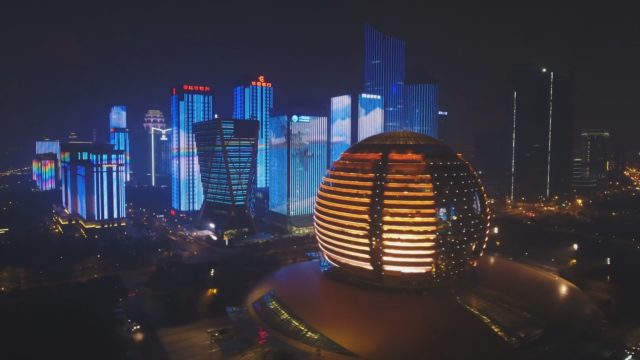China’s Insatiable Appetite for Innovation

“In a bid to become a true innovation economy, China has built an ecosystem to rival Silicon Valley, attracting the world’s best and brightest to develop their business here.”
Benjamin Speyer
Benjamin Speyer, CEO of Serica Consulting and the President of the Hangzhou International Entrepreneurs Association, led AMM through some of the juicy opportunities appearing for businesses as the government in Hangzhou, a city on the eastern seaboard of China, rolls out ambitious plans to catch up to Silicon Valley.
AMM: In 2016, China hosted the G20 summit for the first time ever and chose to hold the event in Hangzhou. Despite having the international spotlight then, Hangzhou is still not well-known to most people abroad. What has been taking place since then?
Benjamin Speyer: Hangzhou was chosen for the G20 because it represents what the future of China looks like: an ancient city with rich culture and traditions while also being a modern cosmopolitan city that embraces the future. The government wants Hangzhou to become the world’s leading the high-tech capital. Having studied Silicon Valley’s model closely, they have replicated their own version—with Chinese characteristics—in a bid to achieve this goal. Through a combination of national, provincial and city level funding, policies and initiatives, research and development led by Zhejiang University and private investment from the likes of Alibaba, Geely and NetEase, they have the foundations set to achieve this goal. You can see this development, in the Chinese style, through what they call “economic corridors.”

AMM: Can you tell us a bit more about these economic corridors?
Benjamin: So, for example, in the west of the city, in Xihu District, they are developing a 40-square-kilometer economic corridor which contains the nation’s main AI and Big Data research centers, as well as being the headquarters of many major companies, such as Ant Financial, smart city developer Enjoyor Technology Group, and property giant Greentown. Within this corridor, there are also hundreds of state-run or privately-owned incubators/business parks that specialize in different fields such as AI, Big Data, Fintech, Blockchain, AR/VR and e-commerce. It’s been tremendously exciting to watch this develop so rapidly.
AMM: What’s the scope of the development for these in Hangzhou?
Benjamin: Like most things in China, the scope and scale is enormous. The government is pumping hundreds of billions of dollars into development not just in Hangzhou, but also in other major cities like Shenzhen, Beijing and Shanghai. The only thing that matches the scope and scale of these projects is the speed in which they develop them. As an entrepreneur there is no place in the world as exciting as China, it really is the next land of opportunity.

AMM: I think most people would find this level of development quite surprising, since we don’t hear much about it in the West. Why do you think that is?
Benjamin: I think there are a couple of reasons. The first is they don’t map things out as an exact blueprint. In the West, we have clearly outlined steps and stages, and then we execute them. China tends to work on general principles and broad goals, and then places significant resources behind them while altering the scope as they go along. The second reason is they struggle to effectively communicate with the international community—you have to remember that the country only opened up to the world in 1987—but encouragingly they are becoming better at overcoming the language barrier and cultural differences, which is evident from the increasing amount of foreign business setting up shop here.
AMM: Would you recommend Hangzhou to other foreigners looking to do business in China?
Benjamin: Absolutely, whether it’s grants, subsidies and matchmaking services from the local government, investment and commercial support from the private sector, or the outstanding local talent, you have everything you need to succeed here. For living, Hangzhou has a vibrant culture, lots of natural scenery such as the Westlake, Longjing tea fields and the Xixi Wetlands, and it doesn’t lack any of the creature comforts you’d expect from a major international city.

Benjamin Speyer is the founder and CEO of Serica, one of China’s leading consultancies, which specializes in helping foreign technology companies expand into the Chinese market. His team of Western and Chinese consultants combine their knowledge, experience and networks to broker high-net deals, partnerships and investments to grow their clients’ businesses in this burgeoning market. His success was recognized by Chinese government and he was given the title of ‘President of the Hangzhou International Entrepreneurs Association’ in 2018 for his contribution to the city’s international development.







